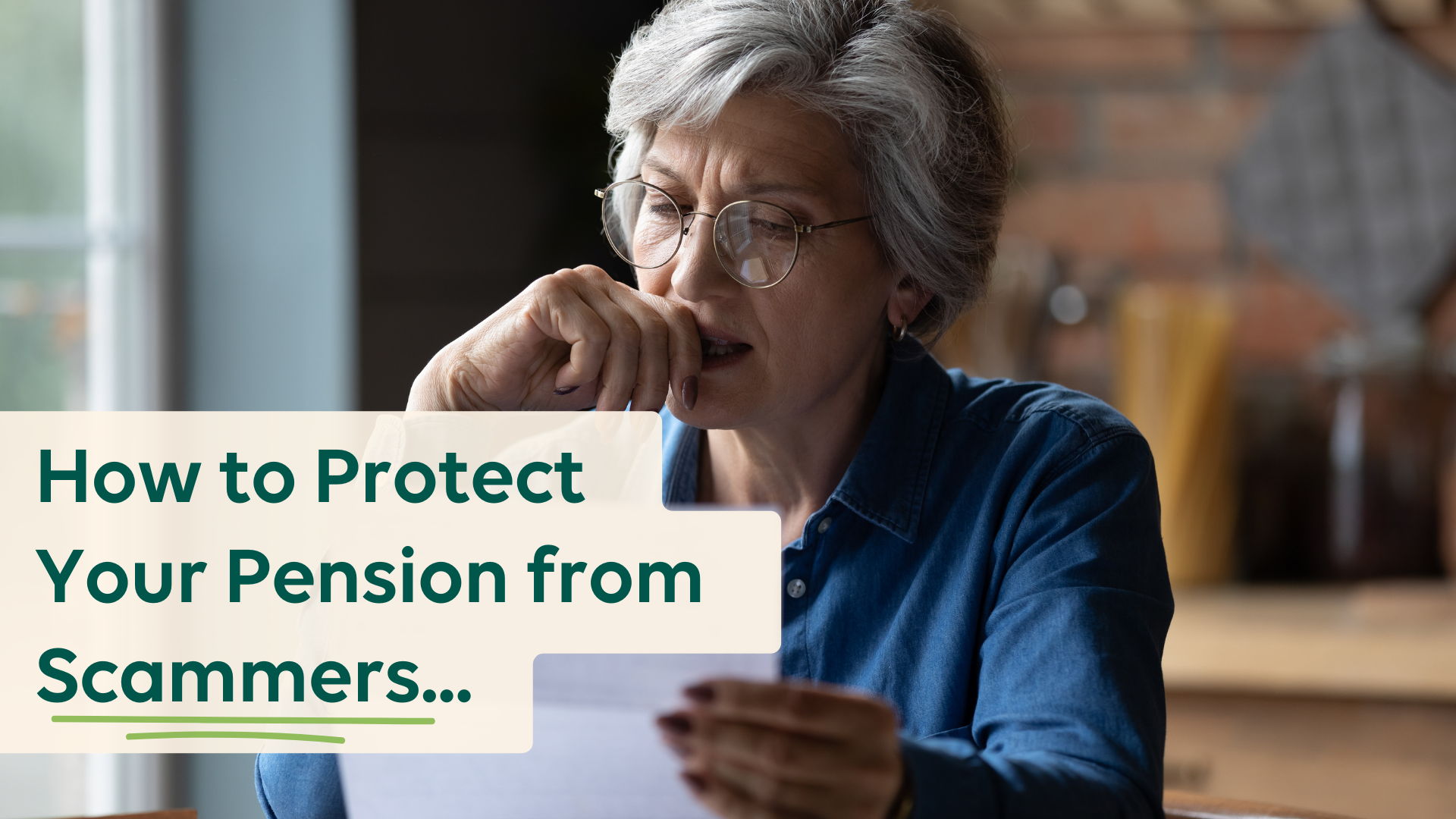
Fraud is a big problem that can have serious consequences, especially when it comes to your pension.
Despite efforts, fraud remains a persistent problem. This week marked a significant step in the fight against fraud with the launch of the ‘Stop! Think Fraud’ campaign, supported by top experts in the field.
This campaign aims to provide clear and practical advice to help people avoid falling victim to scams. It is based on solid evidence and expert input, offering straightforward guidance on preventing fraud through an online hub. It also connects victims with organisations that can offer further help and support.
According to FT Adviser, pension scams have cost victims over £26.4 million between 2020 and 2022, with 1,595 reported cases in England and Wales alone.
Your hard-earned savings could disappear in an instant if you’re not careful about the information you share.
To protect your pension and prevent scammers from taking your money, here are the top ten things to remember from Joslin Rhodes:
Find out how to protect your pension and stop scammers taking your money
According to Money & Pension Service, in 2021, reports of pension scams increased by 45%, and fraudsters stole over £2m from people in the UK in just six months.
So it’s really important that you check before you go ahead with the phone call.
Here’s the Joslin Rhodes top ten things to remember:
- Be wary of cold calls – Scammers often call without any prior contact, or without the victim ever having filled in an enquiry or having looked for pension advice. They’re often financially knowledgeable, are good at sounding legitimate and, usually articulate and sophisticated.
- Check the FCA approved register – The Financial Conduct Authority, or FCA for short, is the regulatory body for the financial industry. All legitimate independent financial advisors are registered with the authority and abide by the rules set out. Check the register on the FCA website if you’re contacted by someone claiming to be a pension specialist or advisor.
- Look at the FCA warning list – Just as there’s an approved register, there’s also a warning list. This is a really useful list to be aware of and you can check whether what you’re being offered is from a genuine company, or whether it’s from someone you should be wary of. If it’s not on the FCA approved register and not on the warning list, it could be a new scammer and it’s best to report it on the FCA website.
- Don’t be pressured – Criminals will often pressure you into making a quick decision and use tactics designed to make you feel you can’t refuse. They will often claim that the offer is exclusive and time-limited to try and persuade you to act now. They may even make tempting promises and try convincing ways to get you to part with your money. Sometimes they even send a courier to wait while you sign forms for them. A genuine financial planner or advisor will never pressure you into making quick decisions.
- Don’t fall for a clone firm – One tactic scammers use is to create what the FCA call a ‘Clone Firm’. This is where a criminal poses as a genuine firm to attempt to persuade you they are that legitimate company. If they are a clone firm, the contact details will be different to the details the FCA approved register holds for the company. Always check the contact information matches.
- Beware of unregulated overseas investment – It’s a well-known criminal tactic to invest in unregulated overseas places where your money is often put in one place at great risk. Money in one investment is at greater risk of loss, particularly if the investment is unregulated and overseas. This is, of course, if the scammer doesn’t just steal the money entirely.
- Be cautious of guaranteed returns – Again, anything that offers a guaranteed return is probably a scam. There’s no such thing. A genuine advisor will talk with you about your potential investment risks and the level of these risks, they will never invest in anything unregulated and put all your money in one risky strategy.
- Get impartial advice – All financial advisors and planners are required by law to give impartial advice that is of genuine benefit to their clients. It is illegal for an advisor to persuade you to do one thing over another for their own gain. A scammer will always try to persuade you to do something that benefits themselves first. Check the approval register to ensure they are giving impartial advice.
- Be wary of false claims – Criminals have been known to pose as the FCA or claim to be part of the FCA, and sometimes say they are calling on behalf of the Government’s Pension Wise service. They can claim to be authorised by all these bodies to appear more legitimate and persuade you to part with your pension. Always make sure you’re talking to someone genuine by checking the register and any claims they make. Read our top tips on how to spot a pension scam shark.
- Report suspicious activity – If you do become the victim of a scam, or even if you suspect you have been approached by a scammer, it’s important to report what happened. It’s only through reports like this that the warning register can be kept up-dated and, the FCA, Pension Wise and the Government can work towards stopping these criminals. Action Fraud can be contacted on 0300 123 2040.
Alongside this, you should be wary of any scheme offering to help release cash from your pension before the age of 55 as it’s almost certainly a scam. This is sometimes also called ‘pension liberation’ or a ‘pension loan’ and criminals often claim that you’re borrowing money from your pension fund. Money can only be accessed from your pension at the age of 55 years old unless there are exceptional circumstances, such as a terminal illness. Further information can be found at the FCA Scam Smart website.
Trust your instincts—if you ever sense uncertainty about the information being requested or feel uneasy about the situation, chances are you’re right. If you want or need more advice on the matter, we’re just a phone call away. Just tap here to talk to our experts.
Joslin Rhodes Pension & Retirement Planning – Real Advice, For Real People
Request your free call back
Pop your details below to arrange a call with our local pension & retirement planning advisers
Did you find this blog useful



